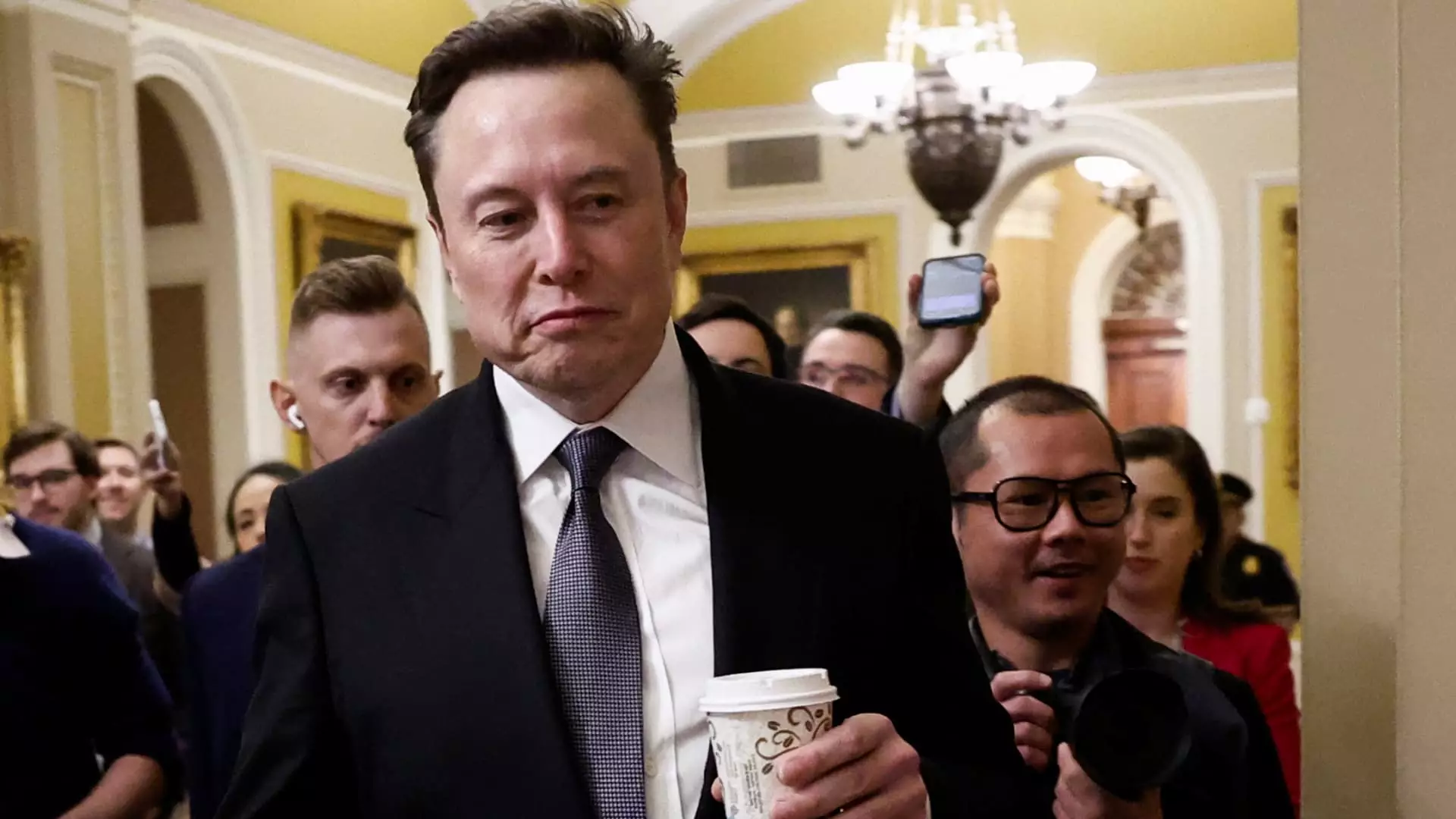Recently, we witnessed a dramatic showdown in Congress as House Democrats, Jim McGovern from Massachusetts and Rosa DeLauro from Connecticut, accused their Republican counterparts of succumbing to the whims of tech mogul Elon Musk. The crux of the tension stemmed from the unraveling of a bipartisan government funding package aimed at tightening regulations on U.S. investments in China, crucial for safeguarding sensitive technologies and industries. As Congress scrambled to pass a stopgap funding bill to stave off a government shutdown, many raised eyebrows at the implications of Musk’s influence on legislative outcomes.
In a series of posts on the social media platform X, formerly known as Twitter, McGovern lamented the potential lost opportunities. He emphasized that the scrapped provisions could have laid down a framework to ensure that emerging technologies like artificial intelligence (AI) and quantum computing remain within U.S. borders, thereby protecting American jobs and innovation. Musk’s extensive business interests in China were cited as the key factor obstructing this legislative effort, particularly his unique position as the only foreign automaker operating a factory in the country without a local partner.
Elon Musk’s business strategy reveals a complex web of interests balancing on a global scale. Tesla, Musk’s flagship company, has not only established a significant manufacturing presence in Shanghai but has also invested heavily in a nearby battery plant. These steps indicate a clear commitment to China’s burgeoning electric vehicle market, which directly conflicts with U.S. legislative intentions to limit American technological advancements’ reach into Chinese markets. McGovern’s comments paint a picture of Musk as a businessman whose financial success relies heavily on maintaining favorable relations with the Chinese government, a narrative that raises eyebrows regarding national security concerns.
Moreover, Musk’s ambitions extend beyond automotive production; he also aims to develop AI data centers in China, which underscores the potential risks these investments pose. Critics argue that such developments could compromise U.S. technological supremacy and, consequently, national security. With artificial intelligence standing as a critical frontier in global competition, it is a point of concern that a figure like Musk, wielding significant influence over both American innovation and Chinese compliance, might sway accountabilities that are foundational to U.S. policy.
The friction between Musk’s corporate ethos and congressional intentions highlights a broader context of U.S.-China relations. With Taiwan’s status hanging in the balance— viewed as a flashpoint in bilateral tensions—Musk’s approach has raised alarm bells. SpaceX, another of Musk’s ventures, has reportedly restricted its Starlink satellite service at the behest of Chinese and Russian authorities, showcasing a willingness to navigate and appease geopolitical waters rather than challenge them.
Moreover, DeLauro’s critical perspective regarding Musk’s entanglements reveals an increasing wariness within Congress about the growing power of private enterprises over public interest. The notion of Musk Trump-like, wielding influence not just in the private sector but also over political outcomes compromises established norms of governance.
With the recent stirrings within Congress, the increasing interdependence between influential tech figures like Musk and political entities has blurring the lines of accountability. The fact that Musk has been perceived as rallying Republican support—notably with contributions exceeding $277 million during the 2024 cycle—raises questions about the integrity of bipartisan governance and its vulnerability to substantial corporate influence.
In light of these events, the discord surrounding the funding bill raises a pivotal question: How do we delineate the interests of billionaire entrepreneurs from the national interests of the United States? As Musk’s partnership with Trump takes shape, with even a proposed task force to reduce regulations looming on the horizon, it compounds the sense of an unsettling merger between business acumen and political strategy.
The evolving narrative of technology, politics, and international relations suggests that the stakes have never been higher. As the conversation regarding U.S.-China relations unfolds, it is critical that Congress reaffirms its role not merely as a governing body but as the representative of American values in the face of dramatic shifts in a tech-dominated landscape.


Leave a Reply